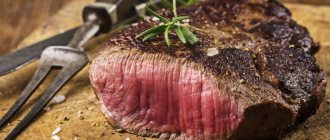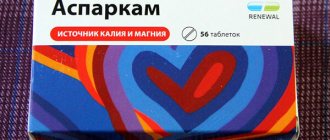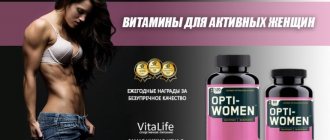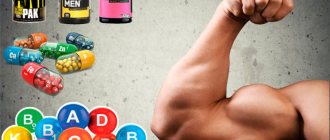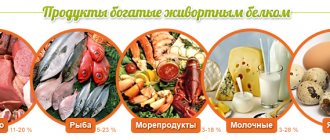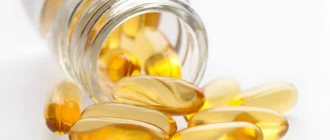Biologically active cobalt-containing substances or cobalamin belong to the B vitamins. These organic compounds are represented by:
- 5-deoxyadenosylcobalamin;
- cyanocobalamin;
- hydroxycobalamin;
- methylcobalamin.
These substances are better known under the common name vitamin B12. The largest portion of cobalt-containing compounds entering the human body is cyanocobalamin. Its main role is to stimulate hematopoietic processes, which is also called external Castle factor.
These organic compounds are produced by bacteria and archaea in the natural environment. The human body contains these biological substances in two types of enzymes. One belongs to the L-methylmalonyl-CoA group, and the second is a methyltransferase.
Benefits of Cyanocobalamin for athletes
Cyanocobalamin is a drug whose active ingredient is vitamin B12. It is characterized by increased biological activity and easily dissolves in water. A person who does not exercise and follows the basics of proper nutrition does not have an urgent need to take the drug. It is prescribed for vitamin B12 deficiency, confirmed by laboratory tests. When metabolized in tissues, the substance is transformed into a coenzyme form. Excretion from the body is carried out along with urine and bile.
Vitamin B12 is widely used in bodybuilding. This is due to the presence of a large number of physiological functions. The beneficial substance enters the human body with food. It is found in foods rich in proteins. With a meager diet, the body especially urgently needs cyanocobalamin. With heavy physical activity, the need for this drug increases even more. Therefore, you have to take it as part of vitamin complexes.
The benefits of cyanocobalamin during sports are as follows:
- ensuring proper functioning of the nervous system;
- strengthening the immune system;
- normalization of blood pressure;
- supplying the body with additional energy;
- appetite regulation;
- stimulation of muscle mass gain;
- acceleration of amine metabolism.
After intense training, cyanocobalamin helps the body recover faster. Thanks to this, it is possible to achieve more pronounced results in sports. Vegans have a special need for cyanocobalamin, since the vitamin does not enter the body with plant foods. Due to the fact that taking the drug increases the number of red blood cells in the blood, when playing sports, the muscles receive the necessary amount of oxygen.
Daily norm
The norm of micronutrients per day is set individually depending on the intensity of training, body weight, the presence of stress and the characteristics of the body. The daily requirement increases with increased protein intake.
Medical standards are general in nature, designed for men with an average weight of 70-80 kg, and therefore often differ from the recommended dosages for bodybuilders.
The need for individual substances may vary depending on the climate. For example, the indicator may increase in climatic zones where there are sharp temperature changes of large amplitude.
When is Cyanocobalamin used in sports?
Not all people involved in sports use cyanocobalamin to build muscle mass. There are certain indications for its use. The main one is the deficiency of the substance in the body. It can be diagnosed by its characteristic symptoms.
- memory impairment;
- chronic fatigue syndrome;
- increased irritability;
- numbness of the limbs;
- decreased vision;
- ulcerative formations in the oral cavity.
The average dosage of the drug for adults is 3 mcg. For intense sports, it is recommended to increase the dose by two or three times. Athletes need this before competitions.
Indications for the use of vitamin B12 are also:
- Iron-deficiency anemia;
- migraine;
- dermatitis;
- muscle wasting;
- neurological pathologies;
- motor neuron disease.
How to take Cyanocobalamin for bodybuilding
Cyanocobalamin ampoules are great for athletes. It is believed that injection administration accelerates the process of absorption of the beneficial substance. The minimum dosage is 3 mcg. Injections are administered intramuscularly or intravenously. During the competition period it is 10-24 mcg. The daily requirement of vitamin B12 must be taken at one time.
As part of multivitamin complexes, the dosage regimen is included in the instructions. Most often, it is recommended to take 1-2 vitamins in the first half of the day. In bodybuilding, you can use an individual dosage of cyanocobalamin. It is calculated by a doctor or sports coach.
It is strictly forbidden to combine vitamin B12 with the following drugs:
- ascorbic acid ;
- riboflavin;
- "Colchicine";
- antiepileptic drugs.
The possibility of combining it with other medications should be checked with your doctor individually. During use, you should be wary of eating foods rich in protein.
Links[edit | edit code]
- Walsh, Stephen, R.D. "Vegan Society B12 factsheet." Vegan Society. www.vegansociety.com/food/nutrition/b12/. Retrieved 2008-01-17.
- Bønaa KH, Njølstad I, Ueland PM, et al. (April 2006). "Homocysteine lowering and cardiovascular events after acute myocardial infarction." The New England Journal of Medicine 354(15): 1578–88.
- https://ascopubs.org/doi/abs/10.1200/JCO.2017.72.7735?journalCode=jco
- Cyanocobalamin: instructions, application and formula https://www.rlsnet.ru/mnn_index_id_1411.htm
- Pharmaceutical rationale for the combination of active and excipients in the composition of the drug Milgamma. https://www.mif-ua.com/archive/article/41272
- Cyanocobalamin. Description of the drug https://www.webapteka.ru/drugbase/name7469.html
Contraindications and side effects
Cyanocobalamin is considered safe even when the dosage is exceeded. But the drug still has contraindications. These include:
- increased level of red blood cells in the blood;
- thromboembolism;
- individual intolerance to the active substance;
- erythremia.
When playing sports, the drug should be used with caution by people with various neoplasms. When the drug is injected, it can become dangerous for patients with megaloblastic anemia, angina pectoris and a predisposition to thrombus formation.
In some cases, side effects appear during vitamin therapy. They go away on their own immediately after you stop taking them. Side symptoms include:
- itchy sensations on the skin;
- bowel dysfunction;
- discomfort in the epigastric region;
- skin rashes;
- hyperemia upon injection.
Anaphylactic shock in response to taking the drug occurs rarely. But lack of coordination and dizziness with individual intolerance are quite possible. People involved in sports should remember that exceeding the dosage is accompanied by blood thinning. This increases the risk of bleeding. Therefore, it is important to avoid any injuries during sports training.
Indications for use
In medical practice, vitamin B12 (injections) has found wide use and is prescribed in the following cases:
- Polyneuritis, neuralgia and radiculitis.
- Chronic anemia developing due to a lack of cyanocobalamin.
- Kidney failure and liver cirrhosis.
- Peripheral nerve injuries, cerebral palsy.
- For prophylaxis when prescribing vitamin C, biguanides, PAS in an increased dosage.
- Alcoholism, prolonged feverish states.
- Skin diseases - atopic dermatitis, photodermatosis, psoriasis and others.
- Pathologies of the intestines and stomach associated with impaired absorption of B12.
- Tumors of the intestines and pancreas.
- Infectious diseases and stress conditions, kidney pathologies.
- Down's disease, funicular myelosis.
Cyanocobalamin (vitamin B12) [edit | edit code ]
Cyanocobalamin
- the main form of vitamin B12 in which it enters the body. It is part of most vitamin complexes, and is also available in the form of an injection solution, which has a characteristic pink color.
Biological effect [ edit | edit code ]
- Participates in protein metabolism
- Participates in the formation of red blood cells (with a deficiency, anemia occurs)
- Necessary for the synthesis of nerve fiber - myelin (if there is a deficiency, funicular myelosis occurs)
- Included in many enzymes
- Participates in creatine synthesis
B12 in sports [edit | edit code ]
Cyanocobalamin has a large number of physiological functions, including those useful for bodybuilding:
- Ensuring normal functioning of the central nervous system
- Carbohydrate metabolism
- Muscle stimulation due to nervous activation of trophic processes, as well as high contraction force and coordination
Additional intake of vitamin B12 is mandatory for vegetarian athletes. Many people use the injectable form.
Vitamin B12 in food [edit | edit code]
Some amount of this vitamin is produced by microorganisms in the human digestive tract. Plant foods contain very small amounts of this vitamin.
People get vitamin B12 from animal foods, including meat (especially liver and kidneys), fish, eggs and dairy products. Other sources of vitamin B12 can be brewer's yeast and nutritional yeast (not to be confused with baker's yeast!), fortified cereals and crushed grain products, as well as special additives. In many food industry countries, the vitamin is added to products such as breakfast cereals, energy bars, and energy drinks.
Vitamin B12 content in some foods
Vitamin B12 content, mcg/100 g of product
Vitamin B12 deficiency [edit | edit code]
As a rule, deficiency of this vitamin occurs in strict vegetarians (vegans), patients with gastritis, parasitosis, and some other diseases. It manifests itself as anemia; in more advanced stages, funicular myelosis develops. [1]
Recommended dosages[edit | edit code]
The average recommended dose for adults is 3 mcg. When playing sports, it is advisable to increase the dose by 2-3 times. Vitamin B12 has very low toxicity; even in very large doses it does not cause complications in healthy people. [2]
High doses of vitamins B6, B12 in the form of additional supplements contribute to the development of a high risk (30%-40%) of developing lung cancer in men. It was also noted that the risk of developing cancer was even higher in men who smoked. But the same studies did not note a statically large change in the risk of increased risk in women [3] .
Interaction [edit | edit code ]
Pharmaceutically (in one syringe) incompatible with solutions of vitamins B1 and B6 (cobalt ion contributes to the destruction of other vitamins). Increases the likelihood of allergic reactions caused by vitamin B1. [4] However, drugs such as Combilipen are stabilized with potassium hexacyanoferrate(II) and are therefore compatible in one bottle. [5] Vitamin B12 preparations are also incompatible with ascorbic acid, heavy metal salts (inactivation of cyanocobalamin), and riboflavin. Aminoglycosides, salicylates, antiepileptic drugs, colchicine, K+ drugs reduce absorption. [6]
Compatibility of B vitamins
When prescribing injections of vitamins B1, B6 and B12, you need to check with your doctor the following points:
- is it possible to use complex means;
- What scheme should you use to inject pure vitamins?
The main difficulty in using these vitamins is that they are incompatible with each other: cyanocobalamin inhibits the effect of pyridoxine and increases the allergenic properties of thiamine, so they cannot be used at the same time. Pyridoxine complicates the absorption of thiamine, preventing its transition to a biologically active form. But these vitamins can be used in combination: both in their pure form according to a special regimen, and as part of multivitamin products.
Combination of pure vitamins
In their pure form, vitamins cannot be mixed in one syringe: they begin to react. Such use can cause severe side effects in the absence of a pronounced therapeutic effect. Therefore, it is recommended to maintain an interval of at least 12 hours between injections. The price of pharmaceutical monocomponent supplements is low, but their use requires compliance with this rule.
Previously, in the absence of comprehensive balanced means, the following scheme was used:
- alternate in the morning: one day - B1, the other - B6;
- Inject B12 in the evening.
There are also schemes in which thiamine and pyridoxine are administered simultaneously, but with different syringes. The next day, an injection of cyanocobalamin is given.
Maintaining an interval of 12 hours between injections helps the active components to be absorbed more efficiently, reducing the likelihood of adverse reactions.
Complex drugs
If a doctor prescribes an injection of a complex of vitamins B1, B6 and B12, many patients begin to doubt it, arguing that the substances are incompatible. Complex products differ from conventional ones in that they are prepared using a special technology that allows the active substances to transform into active form at different times. As a result, they do not interact with each other in the body, and therefore are absorbed more easily.
Such drugs have a higher price because their manufacturing technology differs from conventional monocomponent products. They may also contain lidocaine, which reduces pain during injection. Fewer injections are required per day, which is easier for many patients.
The following drugs are on sale:
- Neuromultivit, G.L. Pharma GmbH;
- Neurobion, Merck KGaA;
- Combilipen, Pharmstandard;
- Larigama, Grotex LLC.
Combilipen and Larigama, in addition to vitamins, contain lidocaine. It reduces pain.
Indications for use
Vitamins B1, B6 and B12 are needed in order to normalize the functioning of the nervous system, increase performance, and reduce pain in degenerative diseases of the spine. They are prescribed in the following cases:
- with polyneuropathy;
- neuralgia and neuritis;
- intercostal neuralgia;
- pain syndrome caused by degenerative changes in the spine;
- herpes zoster;
- during the recovery period after injuries and surgical interventions.
Pregnant women are not prescribed complex drugs, since there is no data on the safety of use during this period.
In their pure form, vitamins can be prescribed for iron deficiency anemia (B12), increased fatigue, acute toxicosis, which is accompanied by severe nutritional deficiency. During lactation, thiamine with cyanocobalamin can be prescribed, but only under medical supervision, since the vitamins can pass into breast milk.
Course duration
The duration of treatment is 10 days for thiamine and pyridoxine and 20 days for cyanocobalamin. Therefore, most often B1 and B6 alternate every other day, and in the other half of the day they inject B12 daily. There is no schedule for injections of vitamins B1, B6 and B12 for prevention - tablets are used for preventive purposes.
The treatment regimen can be developed individually for each individual case, and the duration of the course of use may vary. On average, vitamin injections are given for 2–3 weeks, after which they switch to using tablets.
Painful sensations
Pain occurs when vitamins are administered intramuscularly. The most painful is thiamine (B1). Injections are given in three ways:
The most popular intramuscular method of administration: it allows the active substance to be absorbed into the bloodstream gradually and work longer. With intravenous injections, the active substances reach their maximum concentration in the blood faster, but the period of their elimination is also shortened. Subcutaneous administration of vitamins is characterized by lower bioavailability and severe pain, so it is used extremely rarely.
About the benefits of vitamin B12 [edit | edit code]
The anabolic effect of vitamin B12 is insignificant in relation to muscle tissue, but very large in relation to bone marrow. Under the influence of vitamin B12, hematopoiesis significantly improves and the content of red blood cells - erythrocytes - increases in the blood. Red blood cells carry oxygen from the lungs to all organs and tissues, including muscles. In addition, cyanocobalamin (this is the medical name for vitamin B12) has a highly beneficial effect on the liver.
Uni-Liver liver tablets contain 24 mcg of vitamin B12 per tablet. This dosage is by no means huge. The maximum daily dose of vitamin B12 is 500 mcg, which is more than 20 times higher than its content in one tablet.
source
Vitamin B12 in bodybuilding
Biologically active cobalt-containing substances or cobalamin belong to the B vitamins. These organic compounds are represented by:
- 5-deoxyadenosylcobalamin;
- cyanocobalamin;
- hydroxycobalamin;
- methylcobalamin.
These substances are better known under the common name vitamin B12. The largest portion of cobalt-containing compounds entering the human body is cyanocobalamin. Its main role is to stimulate hematopoietic processes, which is also called external Castle factor.
These organic compounds are produced by bacteria and archaea in the natural environment. The human body contains these biological substances in two types of enzymes. One belongs to the L-methylmalonyl-CoA group, and the second is a methyltransferase.
Biological functions and pharmacokinetics
Substances of group B12 take an active part in two enzymatic reactions. The first is to stabilize and accelerate the transfer with subsequent replacement of atoms. The second also represents a transfer, but between molecules that are part of the methyl group. Organic cobalt-containing substances have a complex and cyclic breakdown structure, so they are not completely eliminated from the body.
Cobalamin is broken down in the liver, becoming part of the bile that enters the intestines, and then partially enters the blood, where it continues to be absorbed. As research has found, primary elimination, which is not always complete, takes at least 500 days, which is 1.5 years. Vitamin B12 is best absorbed when administered intramuscularly or subcutaneously, that is, by injection, when its highest concentration is reached after a maximum of an hour.
In liquid form, the substance has a pinkish characteristic color. Its distinctive feature is good contact with proteins contained in plasma. This allows you to create a strong connection. The combination of these connections with each other is at least 90%, which is quite a high figure.
For bodybuilders, the importance of cobalamin cannot be overestimated. Organic matter plays a vital role in protein metabolism. A deficiency of the compound leads to its disruption, and this is fraught with the most unfavorable processes.
The role of vitamin B12
Cobalamin in bodybuilding is a powerful organic compound that provides a wide range of beneficial effects. If used correctly, you can achieve high results in the sports field.
Taking vitamin B12 by bodybuilders helps:
- improving the quality and stable flow of protein synthesis;
- the formation of red blood cells, since the substance is involved in hematopoiesis;
- the synthesis of creatine, as well as myelin, which is required for the formation of the electrically insulating sheath of nerve fibers.
Cobalamin is part of the enzymes that humans need to maintain vital functions.
Vitamin B1
Thiamine, or B1, is necessary for better absorption of carbohydrates by the body. Therefore, vitamin B1 is very popular in bodybuilding, because it is through carbohydrate products that energy is produced for strength training.
If there is not enough of this substance in the body, then carbohydrates, as well as proteins, will be poorly absorbed, since 2 g of carbohydrates are required to absorb 1 g of protein.
Thiamine is found in cereals, bread, meat, rice, yeast, corn and nuts.
If there is a lack of this vitamin in the body, carbohydrates are not completely broken down, and the remains are stored as fat.
Therefore, athletes who want to achieve body relief urgently need to pay special attention to taking B1
The use of vitamin B12 in bodybuilding
The use of vitamin B12 to achieve sports goals has become widespread. This is due to the fact that the substance is required by the human body for better recovery and maintenance of high performance.
Bodybuilders take cobalamin because its effect on the bodybuilder’s body is the following physiological functions:
- participation in carbohydrate metabolism;
- increasing the force with which muscle impulses contract, as well as improving coordination of movements;
- stabilization, balance, normalization of the function of the central nervous system;
- active stimulation of muscle groups due to active trophic nerve fibers.
In addition, cobalt-containing biologically active substances have a powerful anabolic effect on the bone marrow.
Vitamins in fitness and bodybuilding
For some reason, too little attention is paid to vitamins in fitness and bodybuilding. And they do it absolutely in vain, because a properly selected complex of vitamins helps:
- Increase physical activity;
- Improve the quality of training;
- Raise your emotional activity to a new level.
In this article we will answer the most popular questions regarding vitamins:
- What are vitamins?
- What functions are assigned to them?
- What foods in the diet increase the amount of vitamins in the body?
We’ll also figure out whether it’s worth taking pharmacy vitamins or whether just a balanced diet is enough.
Sources of vitamin B12
Cobalamin is not produced by plant or animal organisms. This also applies to people. Vitamin B12 is the only representative of its group that can be synthesized exclusively by microorganisms, and, therefore, its norm can be replenished by taking injections or with food. It all depends on the degree of need.
Among food products, the organic compound in question is present in lamb, pork liver, beef, chicken eggs, shrimp, mussels, milk, mackerel, and cottage cheese. These are not the only sources of B12, but other foods contain it in smaller quantities. The substance is included in breakfast cereals, some food additives, as well as both chocolate and curd bars, but in a minimal percentage.
Vitamin B6 - action, indications, deficiency and overdose
This article pays special attention to vitamins B6 and B12. Let's start with pyridoxine - B6
This element is included in a large number of supplements and comes with food. In addition, the human body is capable of synthesizing it, but in an insignificant amount.
A lack of substance is provoked by taking antibiotics, poor diet or problems with the gastrointestinal tract. Pyridoxine in each form is stable - resistant to heat and oxygen. The main disadvantage is destruction under the influence of sunlight.
The functions are as follows:
- Improving metabolic processes. Scientists have proven that B6 is involved in many metabolic processes - the metabolism of cholesterol, amino acids, proteins and fats.
- Strengthening the heart. The human body needs pyridoxine, because the latter normalizes the production of prostaglandins - elements that regulate the functioning of the heart muscle and normalize blood pressure.
- Restoring the power of the immune system. The vitamin is known for its ability to accelerate cell division and help the body produce antibodies.
- Improving the condition of skin and hair.
- Normalization of the central nervous system. Research has shown that B6 is involved in the production of important neurotransmitters responsible for brain function and mood. The volume of pyridoxine in the “gray matter” is 30-50 times greater than in the blood.
- Participates in the formation of genetic material, accelerates the process of synthesis of red blood cells and hormones.
- hypo- and vitamin deficiency;
- diarrhea;
- infectious diseases;
- problems in the diet;
- recovery after surgery to remove the stomach;
- dermatitis.
- Animal sources - veal, poultry, pork, beef liver.
- Plant sources - pomegranate, lemons, cabbage, tomatoes, carrots, cereals, potatoes, bread and others.
The human body must receive vitamins in a strictly defined dosage per day. For B6 it is 2-6 mg. Overdose often leads to central nervous system disorders. Lack of the substance is more dangerous and is expressed by the following symptoms:
- Malfunctions of the central nervous system - irritability, drowsiness.
- Skin disorder - dermatitis.
- Anemia.
- Disorders in the digestive tract.
The following categories of people are at risk of vitamin deficiency:
- infants;
- people taking antibiotics for a long time;
- women taking hormonal contraceptives;
- patients with liver diseases, atherosclerosis, polyarthritis;
- pregnant women.
Vitamin B12: who needs to take it, what it is responsible for in the body.
Vitamins are a group of low molecular weight organic compounds of relatively simple structure and diverse chemical nature. You can also find another name - micronutrients, since the body needs them in very small quantities compared to proteins, fats and carbohydrates.
We will talk specifically about vitamin B12. It belongs to coenzymes and contains cobalt. It is found exclusively in animal products, which is a big problem for vegetarians. A small part of it is synthesized by the human intestinal microflora, but for the body to function properly, it is necessary to take the vitamin with food.
Vitamin B12 is actively involved in the synthesis of DNA components; its deficiency leads to disruption of bone marrow cell division and subsequently the maturation of red blood cells decreases. It is responsible for lowering homocysteine levels, which increases a person's chances of having a heart attack or stroke. But for the most effective work of vitamin B12, folic acid is needed.
B12 is necessary for the synthesis of choline, a substance that prevents fatty degeneration of our liver. Participates in the synthesis of amino acids, myelin - the sheath of nerve fibers. Therefore, with a lack of B12, various neurological disorders develop.
Athletes will be interested in its role in muscle growth and in maintaining the vital activity of the nerve fibers of the spinal cord, through which the musculoskeletal system is controlled, stabilization and normalization of the central nervous system. Large role in carbohydrate metabolism. The use of vitamin B12 in bodybuilding is aimed at increasing the function of hematopoiesis, increasing the content of red blood cells in the blood - erythrocytes. They carry oxygen from the lungs to all organs and tissues, including muscles. As a result, our muscles will always work at maximum capacity.
Vitamin B 12 helps overcome insomnia and also helps adapt to changes in sleep and wakefulness, which is explained by the participation of cyanocobalamin in the synthesis of melatonin. For an athlete, healthy sleep is very important; this is when our body fully recovers after tiring workouts.
Vitamin B12 dosage
When purchasing any vitamins, the daily dose is written on the package, but it does not take into account the person’s height, weight, gender and physical activity. Dosage is an individual indicator and reflects the current need for a particular person. It depends on age, physiological state, working conditions, rest and the external environment. The recommended dosage per day is from 1 to 3 micrograms.
With a good and balanced diet, a person receives the required amount of vitamin B12, but keep in mind that food is subjected to heat treatment or long-term storage, and its value decreases. If a person is a vegetarian or follows a diet, he limits the sufficient intake of the vitamin in the body. Smoking, drinking alcohol and exposure to exhaust fumes in megacities increase the need for vitamin B12. For bodybuilders, the daily dosage can increase from 5 to 20 micrograms.
How to diagnose vitamin B12 deficiency and replenish it
B12 is a fat-soluble vitamin and accumulates (deposited) in the liver; if it is deficient, deficiency can only be felt after 3-4 years. The shortage will most quickly make itself felt in autoimmune diseases and intestinal malabsorption. Symptoms of vitamin deficiency include paresthesia - goose bumps, tingling. On the part of the central nervous system - irritability, memory impairment, depression. To treat vitamin deficiency, doses should be higher than prophylactic ones.
What's better: injections or tablets?
Scientists conducted a series of experiments that showed that the effect was almost the same, even if patients had problems with absorption in the gastrointestinal tract. It is worth resorting to injections if there is a serious deficiency of vitamin B12, but then you can still switch to tablets. Be aware that some antibiotics affect the absorption of B vitamins. Also, large dosages of vitamin C suppress the absorption of B vitamins.
Below is a table of vitamin B12 content in foods.
source
Thiamine (B1)
Thiamine is a colorless crystalline substance that dissolves only in water, is easily absorbed and plays an important role in human health. The action of the element is aimed at solving the following tasks:
- Normalization of carbohydrate metabolism in the liver, living tissues and “gray matter” (brain). Thiamine successfully fights pyruvic and lactic acid, which are classified as “fatigue toxins.” An excess of such elements leads to a lack of energy, weakness and excessive fatigue. The main effect is exerted by carboxylase, which is formed in the body after taking B1 and converts harmful elements into glucose. Thanks to this action, a person quickly gets rid of depression, improves appetite, and calms the nervous system.
- Participation in the production of unsaturated fatty acids, one of the functions of which is to protect the liver and gallbladder from the formation of stones.
- Optimization of amino acid metabolism. It has been proven that thiamine deficiency leads to disruptions in metabolic processes associated with the digestibility of proteins.
- Reducing inflammation of the skin, improving the condition of the mucous membranes. Doctors know about these qualities and use the healing properties of thiamine in the treatment of psoriasis, eczema and burns, as well as to eliminate signs of neurodermatitis.
- Improving hair growth and condition of hair follicles.
- Participation in hematopoiesis, as well as cell division. It has been proven that thiamine is one of the regulators of the transport of genetic material.
- Strengthening the immune system. The benefits of vitamin B12 and B1 are known from the point of view of their beneficial effects on the protective functions of the body. In addition, thanks to these elements, the functioning of the thyroid gland, liver and digestive organs improves.
- Providing an analgesic function, as well as reducing the negative effects of drinking alcohol or tobacco. Thiamine is often prescribed for chronic alcoholism.
- Slowing down the aging process. B1 is involved in the creation of new body cells, which helps in prolonging youth.
- Regulation of aminobutyric acid, which is responsible for the correct functioning of the brain, as well as for the production of serotonin, a substance responsible for a good mood.
- Optimization of the state of the central nervous system and muscular system. The action is due to the ability of thiamine to prevent the breakdown of choline, which prevents the accumulation of harmful cholesterol, protects cells and nourishes them with the elements necessary for life.
Thiamine is prescribed in the following cases:
- liver diseases;
- skin problems (eczema, psoriasis, pyoderma);
- disruption of the endocrine system and subsequent related problems (obesity, diabetes);
- disruptions in the functioning of the kidneys, brain and central nervous system;
- problems with the gastrointestinal tract (gastritis, ulcers, pancreatitis and others);
- heart defects.
An excess of thiamine is a rare occurrence, because excess B1 is easily eliminated from the body. The problem arises only when receiving an artificial vitamin in a dosage of 100 mg per day or more. In this situation, the following side effects are possible:
- feeling of heat;
- allergic reactions;
- severe cramps;
- decrease in blood pressure;
- malfunction of the kidneys and liver.
